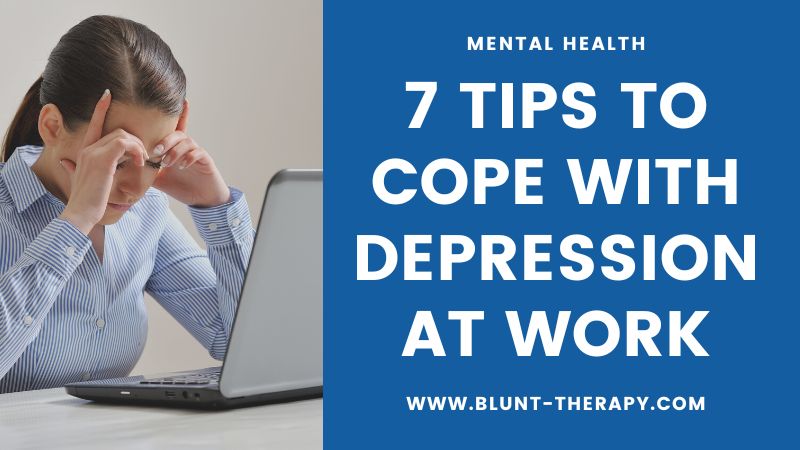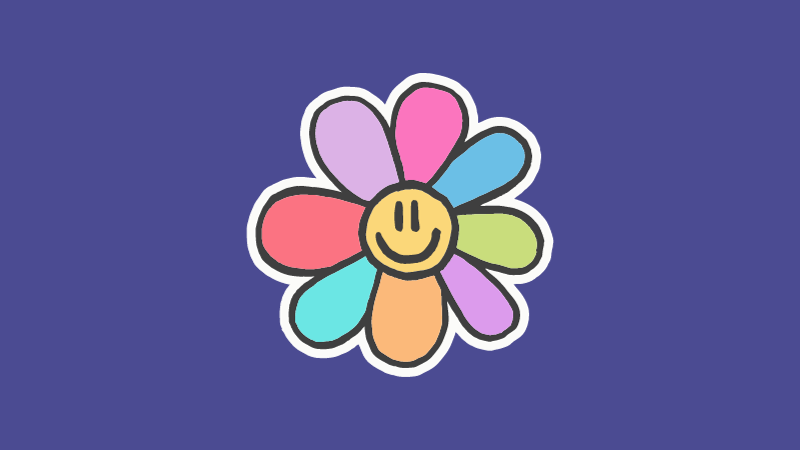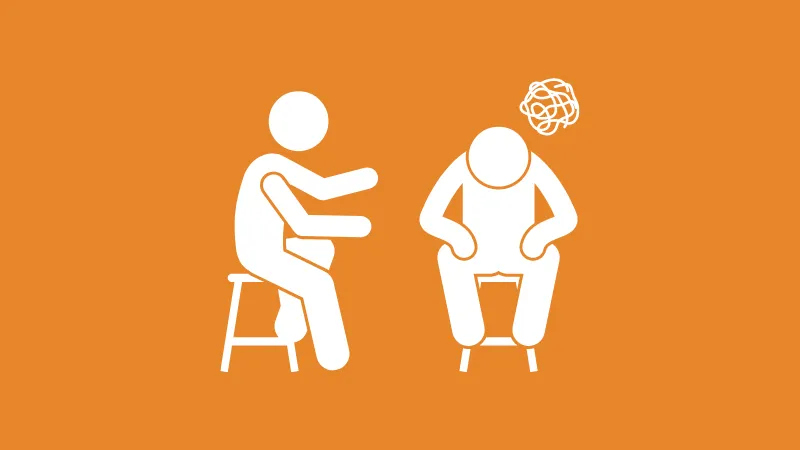Table of Contents
Affiliate link notice: As an affiliate of BetterHelp and other third-party vendors, We will receive compensation if you make a purchase using the links provided on this page. For more information, visit our disclosure page.
Last Updated on September 5, 2022 by Randy Withers, LCMHC
I read this quote that accurately describes a thinking error I often encounter in my therapy practice: “In the absence of information, we jump to the worst conclusions.” If you’ve never heard of it before, it’s called jumping to conclusions.
It’s when you make quick assumptions about a person or thing without gathering enough evidence. As a result, you make wrong decisions on top of feeling sad and anxious.
“In the absence of information, we jump to the worst conclusions.”
— Myra Kassim
People jump to conclusions in different ways. For example, when a friend ignores you one day, you immediately believe that they’re having negative thoughts about you. Another scenario would be predicting that someone would perform poorly at work because of the way they dress.

Understanding Jumping to Conclusions: An Unhelpful Thinking Style
Jumping to conclusions or JTC for short, is a cognitive distortion or an irrational way of thinking that often happens in individuals who are suffering from anxiety, depression, and other mental health issues — although it can happen to anyone who feels stressed out.
By examining your thoughts on a regular basis, you can become more aware of assumptions that are actually doing you more harm than good. Negativity affects us in a lot of ways. It creates difficulties in your relationships or it could limit your potential.
As someone who’s struggling with jumping to conclusions or trying to support a friend or relative with this distortion — you can use a combination of strategies in cognitive behavioral therapy (CBT), such as journaling and relaxation techniques. According to a Frontiers in Psychiatry paper, cognitive behavioral therapy is currently considered the gold standard psychological treatment.
Ways to Stop Jumping to Conclusions
Here’s how to avoid falling into the trap of jumping to conclusions regardless of whether you’re at home, in school, or at work. These are CBT strategies that will benefit anyone, even those who are not dealing with a mental health problem but find themselves experiencing this thinking pattern from time to time.
Use cognitive restructuring.
Cognitive restructuring involves questioning your assumptions, which, in turn, leads to more balanced and realistic thoughts. You can use the Socratic questioning method to determine whether your conclusions are based on facts or simply due to your personal opinions.
Ask yourself these questions when you notice yourself jumping to conclusions:
- What’s the evidence to prove that my thought is accurate or not?
- Why am I having this kind of thought? (lack of sleep, a past experience, prejudices, etc.)
- What might be another explanation for this?
It helps to gather evidence to support of contradict your conclusion about something or someone. Considering the example of your friend ignoring you, you might actually learn in the process that your friend is simply having a bad day and their demeanor has nothing to do with you.
Write in a journal.
You might be surprised to learn that journaling helps overcome one’s tendencies to jump tp negative conclusions. Studies have found that writing also helps increase self-care behaviors and promotes health.
In cognitive therapy, we call this journal a “thought diary” and therapists encourage this as part of their clients’ homework. By writing in their thought diary, clients can better understand how certain thoughts affect their actions.
Try this simple journaling exercise now:
- Think of an incident where you jumped into conclusions: Let’s imagine that you’ve been tasked with a huge project at the company where you work. Your boss approached you to discuss his request but before that, you were already having a bad day.
- Describe your emotions at that moment: Were you nervous? Confused? Fearful?
- Describe the automatic thought that occurred in your mind: Assuming that you jumped to conclusions, this thought might be “I’m going to fail this project” or “I’m bad at this” even without knowing the full details of the project or without first trying.
Based on what you just wrote in your journal, you can see that certain triggers (situations, sights, bad memories) can spark certain emotions. When these emotions are negative, unfortunately, they cause you to develop inaccurate perceptions.
Writing in a journal or thought diary may serve as helpful way for you to assess your thoughts on a daily basis. That way, you’ll be able to work on changing those thoughts that do not help.
Learn to pause.
Do you pause before reacting or making conclusions? Practicing the pause is a powerful strategy when you experience a strong feeling. This gives you time to check in with yourself and try to make sense of what just happened.
You can also use this as an opportunity to take deep breaths and count backwards, which are effective for distracting you from negative emotons.
“Practice the pause. Pause before judging. Pause before assuming. Pause before accusing.” — Lori Deschene
Practice stress management.
Experiencing constant stress can oftentimes lead to poor judgment, which is why it’s so important to keep stress under control if you want to think more clearly.
Stress manifests in different ways and knowing its signs and symptoms is key to stopping it before it overwhelms you. These signs and symptoms include sleep disturbances, stomach aches, muscle tension, digestive problems, forgetfulness, and procrastination.
What strategies relieve stress? Here are tips that will help you protect yourself from stress buildup:
- Positive self-talk: Perhaps it’s time to change your internal dialogue. For example, instead of making a quick assumption that you can’t do something, you can tell yourself, “I’ll approach this from a different angle” or ask yourself a helpful question like, “What am I missing?”
- Better sleep: According to the American Psychological Association, being slightly deprived of sleep can already cause problems in your mood and judgment. To get quality sleep each night, follow a consistent bedtime routine and avoid caffeine 6 hours before bedtime.
- Progressive muscle relaxation (PMR): This involves tensing and relaxing the muscles in different parts of your body, such as your hands, feet, and lips. Aside from helping you calm down, PMR allows you to fall asleep faster.
Final Thoughts
Even if you are mentally well, it’s still possible to develop wrong thoughts occasionally and feel their effects on your performance and relationships.
Cognitive restructuring, thought journaling, pausing, and stress management are some of the best strategies that will help you stop jumping to conclusions. Practice them in your daily life. Also, see a therapist if you cannot seem to control your thoughts on your own.









